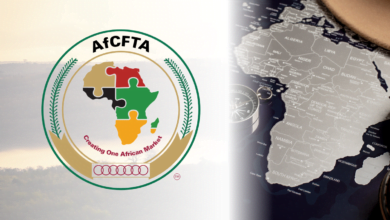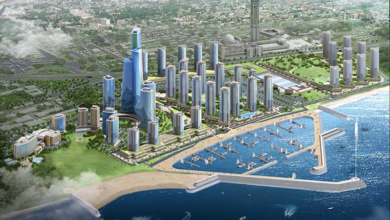Communication: « We innovate in Africa! »
The third edition of « Imperial 2019 » is held from January 21st to 27th in Casablanca. A meeting that confirms the growth of the communication sector on the continent. Sévérine Laurent, specialist in communication in Africa, and among others author of the Keys for communication in West Africa, participates and gives us the latest trends in the sector.
The communication and marketing sector is booming on the continent. How to explain this boom?
Fifteen years ago, I was then communication director of the panafrican television channel Africable, we were confronted with major issues. The most obvious was related to the mentalities of economic operators, excluding multinationals. In these oral societies it was very difficult to convince them to invest in the communication of their organization: for the most part, to communicate was to be free and to invest in this post meant to spend money. Many delegated to the radio and TV channels or even the newspapers the realization of their visuals, their messages. In this way, there was a great period for filmmakers, masters of ceremonies, graphic artists or voices who offered their services independently. Each cog in the communication trades self-declared communicating expert (it was said then communicator), the markets confided by cooptation, messages and messengers sometimes had no sense because lacking vision, technique, data, of strategic construction.
Subsequently, the audiovisual landscapes of French-speaking sub-Saharan Africa have been liberalized, but this new support offer has not changed much the habits of the organizations. At the end of the 2000s, there were more than 200 communication agencies in Senegal and according to the Director of Mc Cann, only half a dozen was really on the road. It is from 2010 that things began to change. Local organizations have better understood the communicant profession, its added value and its expertise. In Cameroon the specialists organized annual meetings to explain their know-how, in Mali the big agencies created an association to refer to the professional communicators. In short, the profession has organized itself to defend its interests. And to make known its principles.
This has resulted in a professionalization of these actors with the emergence of a number of agencies …
On the professionalisation of the actors, quality is clearly booming in French-speaking sub-Saharan Africa. It can be seen by zapping TV, billboards or even the use of methods adapted to local contexts. We innovate! I am thinking, for example, of the growing use of ‘griots mass media’ on the streets of Bamako or on the screens of Dakar. As for the growth of the number of agencies, I am not sure that it has increased in number: little by little, non-professionals tend to disappear in favor of the real pros. It can also be seen that over the past five years, many international agencies have settled in several sub-Saharan countries. This state of affairs is, without a doubt, witnessing the continent’s encouraging potential in terms of communication.
Can we speak of an Africanization of activity? An adaptation of the activity to local realities?
In my opinion, we are at a turning point in sub-Saharan communication. Initially it was 100% African but it was sorely lacking in strategy. For five or six years, the techniques of persuasive communication or marketing influence are strongly marked by international techniques, a sign of double-edged professionalization. I think especially of this spot TV where a lady cooks in an Ikea atmosphere, welcoming in the room her small family (2 children, a husband) to dinner. In 25 years of Africa, I have never dined in a kitchen, let alone Ikéa, with dad, mom and children around the table … These markers, too Western, are not part of the daily habits of the populations and it is misguided to use them only in advertisements. Of course, the ladies have dreams, but the Ikea cuisine must be far off their list …. This influence is logical since the techniques taught and imported come from elsewhere and, as a result of overflowing, Western markers are invited on screens and posters. It takes a few more years, in my opinion, for African communication to reach maturity by writing its own stories. Several agencies have of course already understood. It is also to this essential task that the association Africa Communications Week, which brings together many communicators from the continent, is working. Its main raison is to write and promote African stories of communication.
The development of the Ntic changes the situation there too?
In Francophone sub-Saharan Africa, organizations that communicate the most via ICT are … telecom operators. As we know, the GAFA are very interested in Africa, most scholars under 50 have their Facebook account. The obstacle to their expansion is the still expensive access to Internet data, and of course literacy. It is not for nothing if Facebook has made big investments (like a satellite) to offer free access to the application. Yet, lack of training certainly, still too few African agencies offer exclusive services of communication on the net. As a result, there is also a growing presence on the continent of agencies with foreign capital and expertise specializing in digital technology. It is imperative that young people, who are keen on these technologies, be trained quickly to offer services that are up to the task. In this particular sector, however, they face a major prejudice: the internationals could do better than the locals …
You are taking part in « Imperial 2019 » in Morocco, an event that brings together professionals from the sector. What is the trend?
The global trend in communicating globalization is the big stories. But we have entered the postmodern era of suspicion. With the Internet, all news is discussed, challenged, debated. To anticipate debates, brands build commitments, consciences (Lacoste with its campaign to save animals, Gilette with its feminist spot after the # MeToo movement …). But this is not enough, we must now move to the alter-modern era of concrete anchoring, shared intelligence by involving consumers. This involves the organization of real consultations, debates or conferences allowing communication targets to feel heard. At this level, French-speaking sub-Saharan Africa is ahead even though it may be regrettable that so far, its pros have skirted regularly on the fundamental stage of the construction of the great narrative.
The imperial is a necessary event for professionals. We need to meet to exchange ideas, understand trends, anticipate them. The event also brings together many pan-African advertisers and it is an opportunity to showcase our skills to them. Then, the fact that the meeting takes place in Morocco is an asset: the policies speak a lot of South-South cooperation but in fact, there is still too little trade in the private sector … Moroccan agencies are very seasoned in technical persuasive communication, they produce spots whose quality has nothing to envy to international standards. I am thinking in particular of Videorama, which regularly collects prizes for the production of spots or campaigns. These agencies benefit from incredible skills that they could transmit, exchange, mix with the techniques of pros in sub-Saharan Africa. I am very curious about the future of South-South cooperation, which I believe can make good promises. And I sincerely welcome being invited to this event that can participate in this building.





